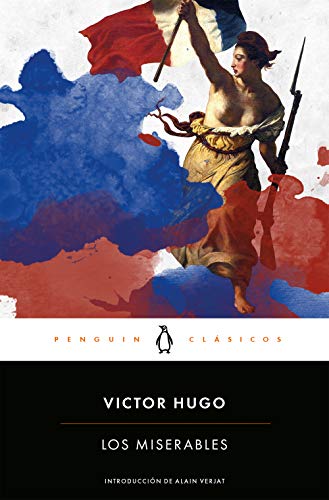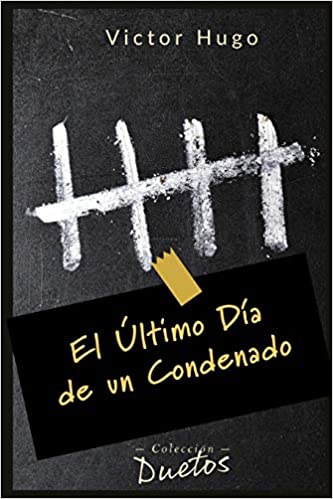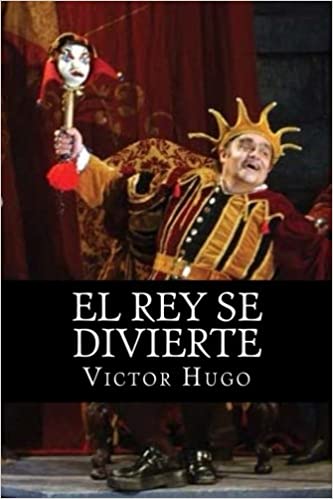For a lover of everything concerning the nineteenth century like me, an author like Víctor Hugo becomes a fundamental reference to see the world under that romantic prism typical of the time. A perspective of the world that moved between the esoteric and modernity, a time in which machines generated industrial wealth and misery in crowded cities. A period in which in those same cities the splendor of the new bourgeoisie and the darkness of a working class that some circles planned in a constant attempt at social revolution coexisted.
Contrasts that Victor Hugo knew how to capture in his literary work. Novels committed to ideals, with a transforming intention in some way and with a lively, very lively plot. Stories that are still read today with true admiration for its complex and complete structure.
In the case of Víctor Hugo, Les Miserables was that top novel, but there is much more to discover in this author. Let's go there.
3 recommended novels by Victor Hugo
Los Miserables
Masterpieces cannot be ousted from their preeminent position. The great literary composition of Victor Hugo is this. Jean Valjean may be the equivalent, in terms of the most recognized literary character in a country, to our Don Quixote.
A guy subjected to the weight of the law and the world in which he lived. A character through whom we are presented with the anthological struggle of good and evil, adjusted to its historical moment, but easily extrapolated to any moment of our civilization.
Summary: Jean Valjean, an ex-convict who was imprisoned for twenty years for stealing a piece of bread, becomes an exemplary man who fights against misery and injustice and who commits his life to caring for the daughter of a woman who had to become a prostitute to survive. save the girl. Thus, Jean Valjean is forced to change his names several times, is captured, escapes and reappears.
At the same time, he must elude Commissioner Javert, an inflexible policeman who pursues him convinced that he has pending accounts with the justice system. The confrontation between the two takes place during the revolts of 1832 in Paris, where, at the barricades, a group of idealistic young men stand up to the army in defense of freedom. And, among all this, stories of love, sacrifice, redemption, friendship, ...
Because progress, the law, the soul, God, the French Revolution, the prison, the social contract, crime, the sewers of Paris, the love affair, abuse, poverty, justice... everything has a place in the most Victor Hugo's extensive and famous work, Les Misérables.
A masterful chronicle of the history of France in the first half of the 1848th century, from Waterloo to the barricades of XNUMX, Victor Hugo voluntarily sought with Les Misérables a literary genre tailored to man and the modern world, a total novel. Not in vain, he concludes thus: "...as long as there is ignorance and misery on earth, books like this might not be useless"
The last day of a man sentenced to death
The death penalty is not an issue on which ethical dilemmas loom only today. The death of one human at the hands of another, despite the law through, has always encountered controversy. Victor Hugo dealt with it in this novel.
Summary: An anonymous death row inmate decides to write the last hours of his life in a kind of diary. Uncertainty, loneliness, anguish and terror follow one another in a story that ends just when the execution is about to take place.
Through the suffering of the narrator, the novel denies any positive value to the death penalty: it is unjust, inhuman and cruel, and the society that applies it is responsible for a crime like any other. A novel of analysis or intimate drama, as defined by its own author, it is ahead of its time in the use of the interior monologue, which will have so much development in the narrative of the XNUMXth century.
The king has fun
The parody always has a transgressive intention, even conscientious through cheeky humor. Víctor Hugo constructs a tragic parody, bordering on the grotesque of Valle Inclán.
Summary: The King Has Amusement, by Victor Hugo, is a dramatic piece of the first order, and not only because of the scandal that surrounded it at its premiere in 1833, but also because of the tight description of its main protagonist, the jester Triboulet, and the masterful way in which his devious personality weaves the trap into which he himself will fall. This twist is reflected in the etymology of his name, triboler, which in Old French means to torment, trouble, something our jester never stops doing.
The mission of the court jesters was more complex than the merely burlesque, and there is evidence that they exercised a warning function, while their out-of-canon appearance (Triboulet is hunchback) served as a counterpoint to normality and above all to the excellence of the real model, either to enhance it or to stop it.



